- Home
- Arthur Conan Doyle
The Vital Message Page 6
The Vital Message Read online
Page 6
And what is the punishment of the undeveloped soul? It is that it should be placed where it will develop, and sorrow would seem always to be the forcing ground of souls. That surely is our own experience in life where the insufferably complacent and unsympathetic person softens and mellows into beauty of character and charity of thought, when tried long enough and high enough in the fires of life. The Bible has talked about the "Outer darkness where there is weeping and gnashing of teeth." The influence of the Bible has sometimes been an evil one through our own habit of reading a book of Oriental poetry and treating it as literally as if it were Occidental prose. When an Eastern describes a herd of a thousand camels he talks of camels which are more numerous than the hairs of your head or the stars in the sky. In this spirit of allowance for Eastern expression, one must approach those lurid and terrible descriptions which have darkened the lives of so many imaginative children and sent so many earnest adults into asylums. From all that we learn there are indeed places of outer darkness, but dim as these uncomfortable waiting-rooms may be, they all admit to heaven in the end. That is the final destination of the human race, and it would indeed be a reproach to the Almighty if it were not so. We cannot dogmatise upon this subject of the penal spheres, and yet we have very clear teaching that they are there and that the no-man's-land which separates us from the normal heaven, that third heaven to which St. Paul seems to have been wafted in one short strange experience of his lifetime, is a place which corresponds with the Astral plane of the mystics and with the "outer darkness" of the Bible. Here linger those earth-bound spirits whose worldly interests have clogged them and weighed them down, until every spiritual impulse had vanished; the man whose life has been centred on money, on worldly ambition, or on sensual indulgence. The one-idea'd man will surely be there, if his one idea was not a spiritual one. Nor is it necessary that he should be an evil man, if dear old brother John of Glastonbury, who loved the great Abbey so that he could never detach himself from it, is to be classed among earth-bound spirits. In the most material and pronounced classes of these are the ghosts who impinge very closely upon matter and have been seen so often by those who have no strong psychic sense. It is probable, from what we know of the material laws which govern such matters, that a ghost could never manifest itself if it were alone, that the substance for the manifestation is drawn from the spectator, and that the coldness, raising of hair, and other symptoms of which he complains are caused largely by the sudden drain upon his own vitality. This, however, is to wander into speculation, and far from that correlation of psychic knowledge with religion, which has been the aim of these chapters.
By one of those strange coincidences, which seem to me sometimes to be more than coincidences, I had reached this point in my explanation of the difficult question of the intermediate state, and was myself desiring further enlightenment, when an old book reached me through the post, sent by someone whom I have never met, and in it is the following passage, written by an automatic writer, and in existence since 1880. It makes the matter plain, endorsing what has been said and adding new points. "Some cannot advance further than the borderland -- such as never thought of spirit life and have lived entirely for the earth, its cares and pleasures -- even clever men and women, who have lived simply intellectual lives without spirituality. There are many who have misused their opportunities, and are now longing for the time misspent and wishing to recall the earth- life. They will learn that on this side the time can be redeemed, though at much cost. The borderland has many among the restless money-getters of earth, who still haunt the places where they had their hopes and joys. These are often the longest to remain . . . many are not unhappy. They feel the relief to be sufficient to be without their earth bodies. All pass through the borderland, but some hardly perceive it. It is so immediate, and there is no resting there for them. They pass on at once to the refreshment place of which we tell you." The anonymous author, after recording this spirit message, mentions the interesting fact that there is a Christian inscription in the Catacombs which runs: NICEFORUS ANIMA DULCIS IN REFRIGERIO, "Nicephorus, a sweet soul in the refreshment place." One more scrap of evidence that the early Christian scheme of things was very like that of the modern psychic.
So much for the borderland, the intermediate condition. The present Christian dogma has no name for it, unless it be that nebulous limbo which is occasionally mentioned, and is usually defined as the place where the souls of the just who died before Christ were detained. The idea of crossing a space before reaching a permanent state on the other side is common to many religions, and took the allegorical form of a river with a ferry- boat among the Romans and Greeks. Continually, one comes on points which make one realise that far back in the world's history there has been a true revelation, which has been blurred and twisted in time. Thus in Dr. Muir's summary of the RIG. VEDA, he says, epitomising the beliefs of the first Aryan conquerors of India: "Before, however, the unborn part" (that is, the etheric body) "can complete its course to the third heaven it has to traverse a vast gulf of darkness, leaving behind on earth all that is evil, and proceeding by the paths the fathers trod, the spirit soars to the realms of eternal light, recovers there his body in a glorified form, and obtains from God a delectable abode and enters upon a more perfect life, which is crowned with the fulfilment of all desires, is passed in the presence of the Gods and employed in the fulfilment of their pleasure." If we substitute "angels" for "Gods" we must admit that the new revelation from modern spirit sources has much in common with the belief of our Aryan fathers.
Such, in very condensed form, is the world which is revealed to us by these wonderful messages from the beyond. Is it an unreasonable vision? Is it in any way opposed to just principles? Is it not rather so reasonable that having got the clue we could now see that, given any life at all, this is exactly the line upon which we should expect to move? Nature and evolution are averse from sudden disconnected developments. If a human being has technical, literary, musical, or other tendencies, they are an essential part of his character, and to survive without them would be to lose his identity and to become an entirely different man. They must therefore survive death if personality is to be maintained. But it is no use their surviving unless they can find means of expression, and means of expression seem to require certain material agents, and also a discriminating audience. So also the sense of modesty among civilised races has become part of our very selves, and implies some covering of our forms if personality is to continue. Our desires and sympathies would prompt us to live with those we love, which implies something in the nature of a house, while the human need for mental rest and privacy would predicate the existence of separate rooms. Thus, merely starting from the basis of the continuity of personality one might, even without the revelation from the beyond, have built up some such sytsem by the use of pure reason and deduction.
So far as the existence of this land of happiness goes, it would seem to have been more fully proved than any other religious conception within our knowledge.
It may very reasonably be asked, how far this precise description of life beyond the grave is my own conception, and how far it has been accepted by the greater minds who have studied this subject? I would answer, that it is my own conclusion as gathered from a very large amount of existing testimony, and that in its main lines it has for many years been accepted by those great numbers of silent active workers all over the world, who look upon this matter from a strictly religious point of view. I think that the evidence amply justifies us in this belief. On the other hand, those who have approached this subject with cold and cautious scientific brains, endowed, in many cases, with the strongest prejudices against dogmatic creeds and with very natural fears about the possible re-growth of theological quarrels, have in most cases stopped short of a complete acceptance, declaring that there can be no positive proof upon such matters, and that we may deceive ourselves either by a reflection of our own thoughts or by receiving the impressions of the medium. Professor Zoll
ner, for example, says: "Science can make no use of the substance of intellectual revelations, but must be guided by observed facts and by the conclusions logically and mathematically uniting them" -- a passage which is quoted with approval by Professor Reichel, and would seem to be endorsed by the silence concerning the religious side of the question which is observed by most of our great scientific supporters. It is a point of view which can well be understood, and yet, closely examined, it would appear to be a species of enlarged materialism. To admit, as these observers do, that spirits do return, that they give every proof of being the actual friends whom we have lost, and yet to turn a deaf ear to the messages which they send would seem to be pushing caution to the verge of unreason. To get so far, and yet not to go further, is impossible as a permanent position. If, for example, in Raymond's case we find so many allusions to the small details of his home upon earth, which prove to be surprisingly correct, is it reasonable to put a blue pencil through all he says of the home which he actually inhabits? Long before I had convinced my mind of the truth of things which appeared so grotesque and incredible, I had a long account sent by table tilting about the conditions of life beyond. The details seemed to me impossible and I set them aside, and yet they harmonise, as I now discover, with other revelations. So, too, with the automatic script of Mr. Hubert Wales, which has been described in my previous book. He had tossed it aside into a drawer as being unworthy of serious consideration, and yet it also proved to be in harmony. In neither of these cases was telepathy or the prepossession of the medium a possible explanation. On the whole, I am inclined to think that these doubtful or dissentient scientific men, having their own weighty studies to attend to, have confined their reading and thought to the more objective side of the question, and are not aware of the vast amount of concurrent evidence which appears to give us an exact picture of the life beyond. They despise documents which cannot be proved, and they do not, in my opinion, sufficiently realise that a general agreement of testimony, and the already established character of a witness, are themselves arguments for truth. Some complicate the question by predicating the existence of a fourth dimension in that world, but the term is an absurdity, as are all terms which find no corresponding impression in the human brain. We have mysteries enough to solve without gratuitously intro ducing fresh ones. When solid passes through solid, it is, surely, simpler to assume that it is done by a dematerialisation, and subsequent reassembly -- a process which can, at least, be imagined by the human mind -- than to invoke an explanation which itself needs to be explained.
In the next and final chapter I will ask the reader to accompany me in an examination of the New Testament by the light of this psychic knowledge, and to judge how far it makes clear and reasonable much which was obscure and confused.
IS IT THE SECOND DAWN?
There are many incidents in the New Testament which might be taken as starting points in tracing a close analogy between the phenomenal events which are associated with the early days of Christianity, and those which have perplexed the world in connection with modern Spiritualism. Most of us are prepared to admit that the lasting claims of Christianity upon the human race are due to its own intrinsic teachings, which are quite independent of those wonders which can only have had a use in startling the solid complacence of an unspiritual race, and so directing their attention violently to this new system of thought. Exactly the same may be said of the new revelation. The exhibitions of a force which is beyond human experience and human guidance is but a method of calling attention. To repeat a simile which has been used elsewhere, it is the humble telephone bell which heralds the all-important message. In the case of Christ, the Sermon on the Mount was more than many miracles. In the case of this new development, the messages from beyond are more than any phenomena. A vulgar mind might make Christ's story seem vulgar, if it insisted upon loaves of bread and the bodies of fish. So, also, a vulgar mind may make psychic religion vulgar by insisting upon moving furniture or tambourines in the air. In each case they are crude signs of power, and the essence of the matter lies upon higher planes.
It is stated in the second chapter of the Acts of the Apostles, that they, the Christian leaders, were all "with one accord" in one place. "With one accord" expresses admirably those sympathetic conditions which have always been found, in psychic circles, to be conducive of the best results, and which are so persistently ignored by a certain class of investigators. Then there came "a mighty rushing wind," and afterwards "there appeared cloven tongues like unto fire and it sat upon each of them." Here is a very definite and clear account of a remarkable sequence of phenomena. Now, let us compare with this the results which were obtained by Professor Crookes in his investigation in 1873, after he had taken every possible precaution against fraud which his experience, as an accurate observer and experimenter, could suggest. He says in his published notes: "I have seen luminous points of light darting about, sitting on the heads of different persons" and then again: "These movements, and, indeed, I may say the same of every class of phenomena, are generally preceded by a peculiar cold air, sometimes amounting to a decided wind. I have had sheets of paper blown about by it. . . ." Now, is it not singular, not merely that the phenomena should be of the same order, but that they should come in exactly the same sequence, the wind first and the lights afterwards? In our ignorance of etheric physics, an ignorance which is now slowly clearing, one can only say that there is some indication here of a general law which links those two episodes together in spite of the nineteen centuries which divide them. A little later, it is stated that "the place was shaken where they were assembled together." Many modern observers of psychic phenomena have testified to vibration of the walls of an apartment, as if a heavy lorry were passing. It is, evidently, to such experiences that Paul alludes when he says: "Our gospel came unto you not in word only, but also in power." The preacher of the New Revelation can most truly say the same words. In connection with the signs of the pentecost, I can most truly say that I have myself experienced them all, the cold sudden wind, the lambent misty flames, all under the mediumship of Mr. Phoenix, an amateur psychic of Glasgow. The fifteen sitters were of one accord upon that occasion, and, by a coincidence, it was in an upper room, at the very top of the house.
In a previous section of this essay, I have remarked that no philosophical explanation of these phenomena, known as spiritual, could be conceived which did not show that all, however different in their working, came from the same central source. St. Paul seems to state this in so many words when he says: "But all these worketh that one and the selfsame spirit, dividing to every man severally as he will." Could our modern speculation, forced upon us by the facts, be more tersely stated? He has just enumerated the various gifts, and we find them very close to those of which we have experience. There is first "the word of wisdom," "the word of knowledge" and "faith." All these taken in connection with the Spirit would seem to mean the higher communications from the other side. Then comes healing, which is still practised in certain conditions by a highly virile medium, who has the power of discharging strength, losing just as much as the weakling gains, as instanced by Christ when He said: "Who has touched me? Much virtue" (or power) "has gone out of me." Then we come upon the working of miracles, which we should call the production of phenomena, and which would cover many different types, such as apports, where objects are brought from a distance, levitation of objects or of the human frame into the air, the production of lights and other wonders. Then comes prophecy, which is a real and yet a fitful and often delusive form of medium ship -- never so delusive as among the early Christians, who seem all to have mistaken the approaching fall of Jerusalem and the destruction of the Temple, which they could dimly see, as being the end of the world. This mistake is repeated so often and so clearly that it is really not honest to ignore or deny it. Then we come to the power of "discerning the spirits," which corresponds to our clairvoyance, and finally that curious and usually useless gift of tongues, which is also a mo
dern phenomenon. I can remember that some time ago I read the book, "I Heard a Voice," by an eminent barrister, in which he describes how his young daughter began to write Greek fluently with all the complex accents in their correct places. Just after I read it I received a letter from a no less famous physician, who asked my opinion about one of his children who had written a considerable amount of script in mediaeval French. These two recent cases are beyond all doubt, but I have not had convincing evidence of the case where some unintelligible signs drawn by an unlettered man were pronounced by an expert to be in the Ogham or early Celtic character. As the Ogham script is really a combination of straight lines, the latter case may be taken with considerable reserve.

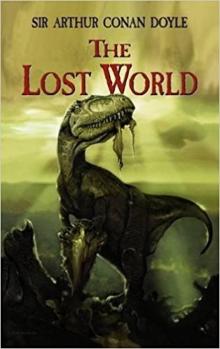 The Lost World
The Lost World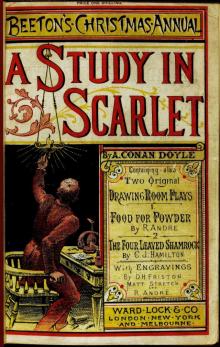 A Study in Scarlet
A Study in Scarlet The Firm of Girdlestone
The Firm of Girdlestone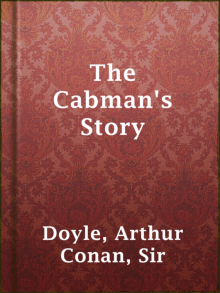 The Cabman's Story
The Cabman's Story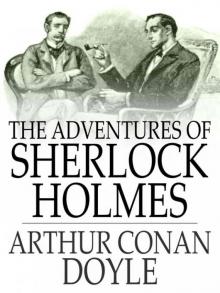 The Adventures of Sherlock Holmes
The Adventures of Sherlock Holmes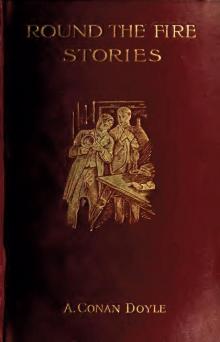 Round the Fire Stories
Round the Fire Stories His Last Bow: An Epilogue of Sherlock Holmes
His Last Bow: An Epilogue of Sherlock Holmes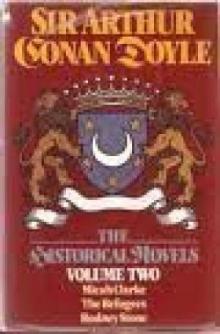 Micah Clarke
Micah Clarke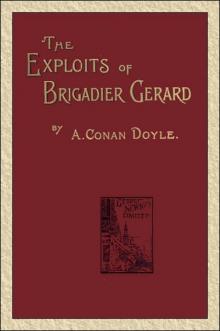 The Exploits of Brigadier Gerard
The Exploits of Brigadier Gerard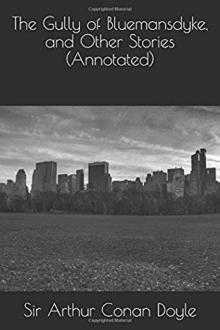 The Gully of Bluemansdyke, and Other stories
The Gully of Bluemansdyke, and Other stories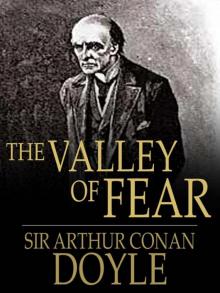 The Valley of Fear
The Valley of Fear The Last of the Legions and Other Tales of Long Ago
The Last of the Legions and Other Tales of Long Ago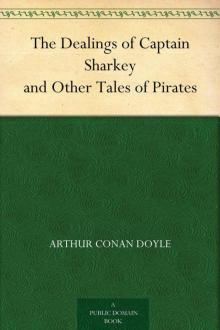 The Dealings of Captain Sharkey, and Other Tales of Pirates
The Dealings of Captain Sharkey, and Other Tales of Pirates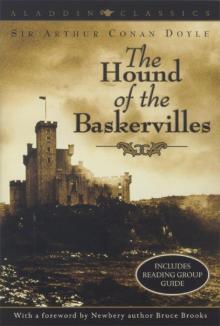 The Hound of the Baskervilles
The Hound of the Baskervilles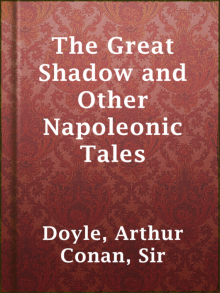 The Great Shadow and Other Napoleonic Tales
The Great Shadow and Other Napoleonic Tales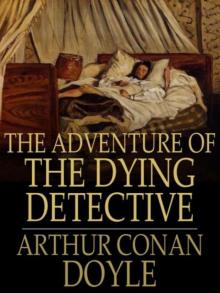 The Adventure of the Dying Detective
The Adventure of the Dying Detective The Man from Archangel, and Other Tales of Adventure
The Man from Archangel, and Other Tales of Adventure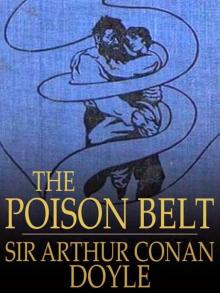 The Poison Belt
The Poison Belt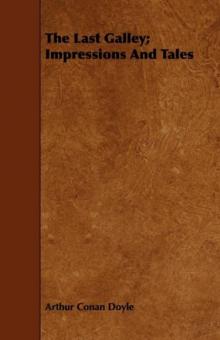 The Last Galley; Impressions and Tales
The Last Galley; Impressions and Tales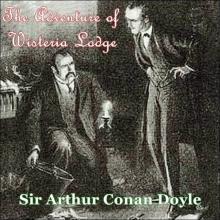 The Adventure of Wisteria Lodge
The Adventure of Wisteria Lodge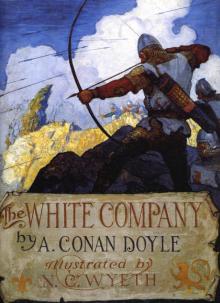 The White Company
The White Company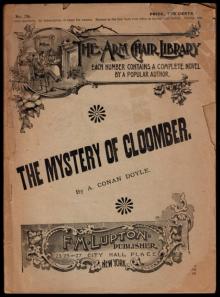 The Mystery of Cloomber
The Mystery of Cloomber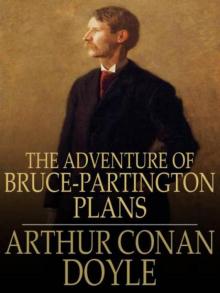 The Adventure of the Bruce-Partington Plans
The Adventure of the Bruce-Partington Plans The Adventure of the Cardboard Box
The Adventure of the Cardboard Box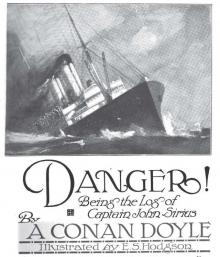 Danger! and Other Stories
Danger! and Other Stories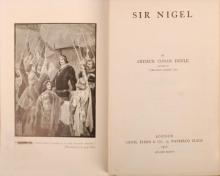 Sir Nigel
Sir Nigel The Return of Sherlock Holmes
The Return of Sherlock Holmes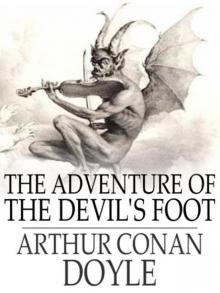 The Adventure of the Devil's Foot
The Adventure of the Devil's Foot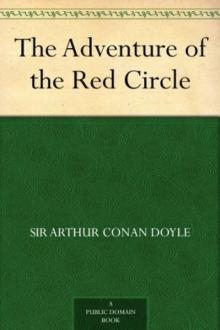 The Adventure of the Red Circle
The Adventure of the Red Circle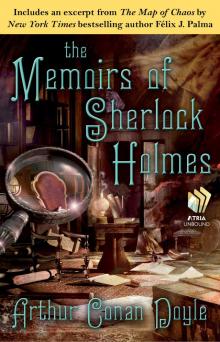 The Memoirs of Sherlock Holmes
The Memoirs of Sherlock Holmes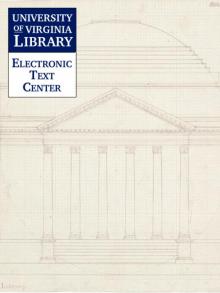 The Adventure of the Yellow Face
The Adventure of the Yellow Face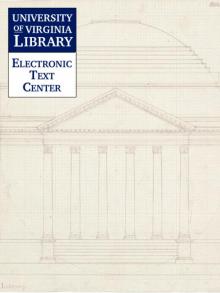 The Adventure of the Norwood Builder
The Adventure of the Norwood Builder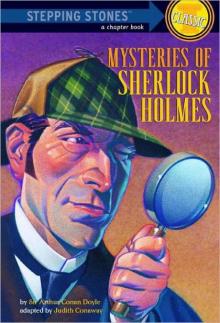 Mysteries of Sherlock Holmes
Mysteries of Sherlock Holmes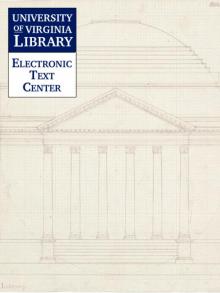 The Adventure of the Missing Three-Quarter
The Adventure of the Missing Three-Quarter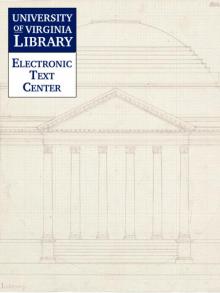 The Adventure of the Final Problem
The Adventure of the Final Problem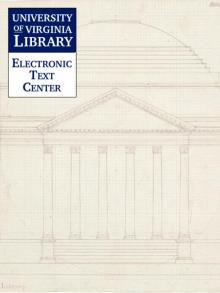 A Scandal in Bohemia
A Scandal in Bohemia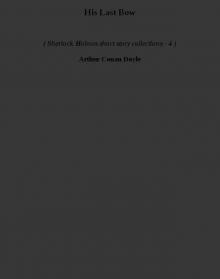 His Last Bow shssc-4
His Last Bow shssc-4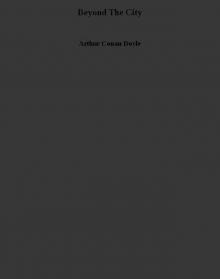 Beyond The City
Beyond The City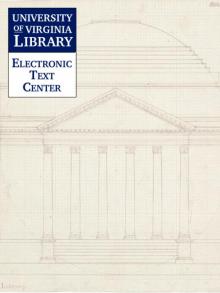 The Adventure of the Gloria Scott
The Adventure of the Gloria Scott The Parasite
The Parasite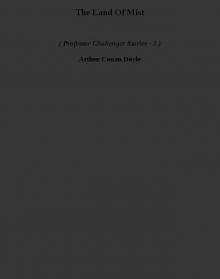 The Land Of Mist pcs-3
The Land Of Mist pcs-3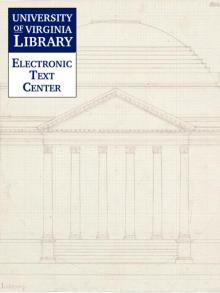 The Adventure of the Musgrave Ritual
The Adventure of the Musgrave Ritual The Complete Sherlock Holmes, Volume I (Barnes & Noble Classics Series)
The Complete Sherlock Holmes, Volume I (Barnes & Noble Classics Series)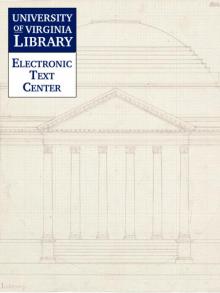 The Adventure of the Stockbroker's Clerk
The Adventure of the Stockbroker's Clerk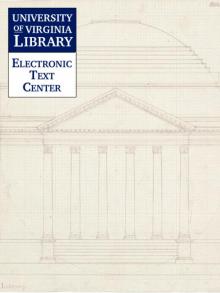 The Adventure of the Copper Beeches
The Adventure of the Copper Beeches The New Annotated Sherlock Holmes
The New Annotated Sherlock Holmes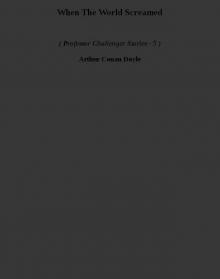 When The World Screamed pcs-5
When The World Screamed pcs-5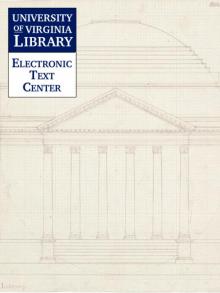 The Adventure of the Six Napoleons
The Adventure of the Six Napoleons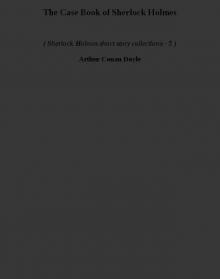 The Case Book of Sherlock Holmes shssc-5
The Case Book of Sherlock Holmes shssc-5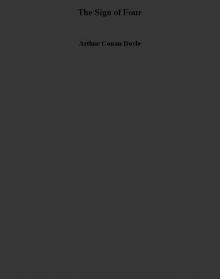 The Sign of Four
The Sign of Four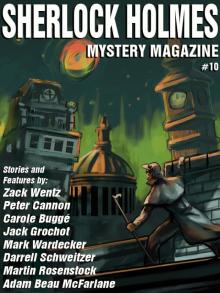 Sherlock Holmes Mystery Magazine #10
Sherlock Holmes Mystery Magazine #10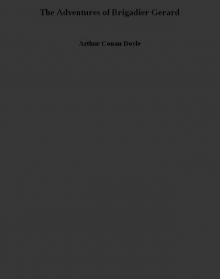 The Adventures of Brigadier Gerard
The Adventures of Brigadier Gerard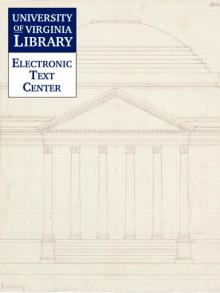 The Adventure of the Second Stain
The Adventure of the Second Stain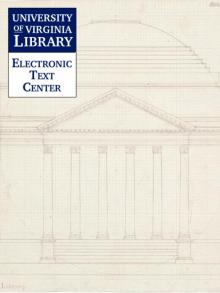 The Adventure of the Engineer's Thumb
The Adventure of the Engineer's Thumb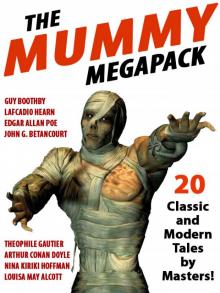 The Mummy Megapack
The Mummy Megapack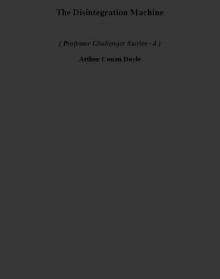 The Disintegration Machine pcs-4
The Disintegration Machine pcs-4 The Maracot Deep
The Maracot Deep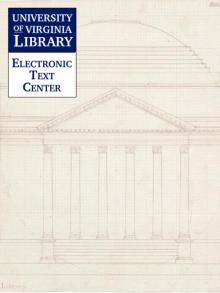 The Five Orange Pips
The Five Orange Pips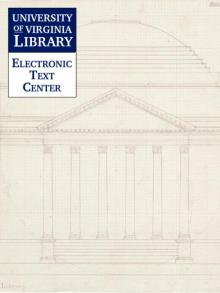 The Adventure of the Crooked Man
The Adventure of the Crooked Man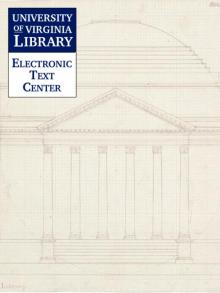 The Adventure of the Blue Carbuncle
The Adventure of the Blue Carbuncle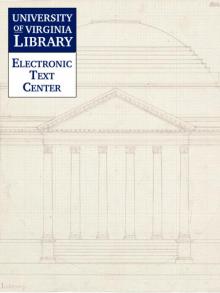 The Adventure of Silver Blaze
The Adventure of Silver Blaze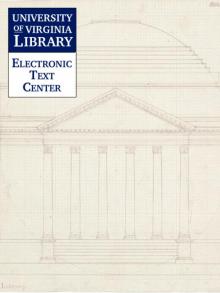 The Adventure of the Solitary Cyclist
The Adventure of the Solitary Cyclist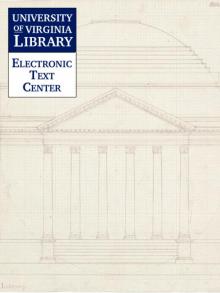 The Adventure of the Naval Treaty
The Adventure of the Naval Treaty Sherlock Holmes. The Complete Stories
Sherlock Holmes. The Complete Stories The Adventures of Sherlock Holmes (sherlock holmes)
The Adventures of Sherlock Holmes (sherlock holmes)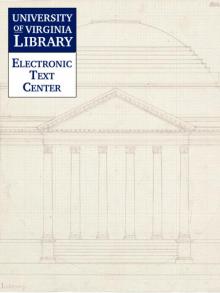 The Adventure of the Empty House
The Adventure of the Empty House The Narrative of John Smith
The Narrative of John Smith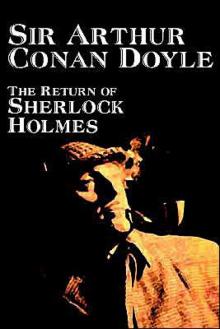 The Return of Sherlock Holmes (sherlock holmes)
The Return of Sherlock Holmes (sherlock holmes)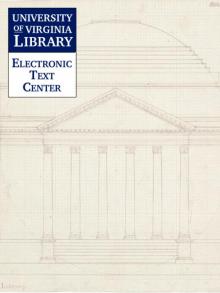 The New Revelation
The New Revelation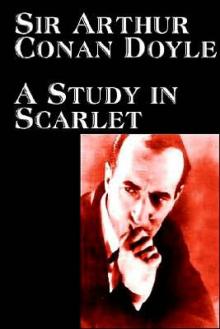 A Study in Scarlet (sherlock holmes)
A Study in Scarlet (sherlock holmes)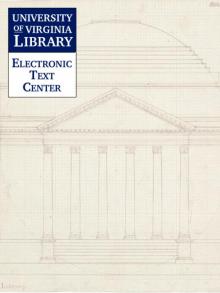 The Vital Message
The Vital Message Sherlock Holmes Complete Collection
Sherlock Holmes Complete Collection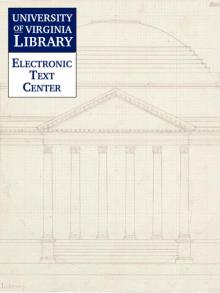 Round the Red Lamp
Round the Red Lamp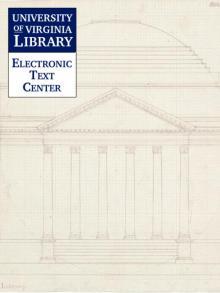 The Boscombe Valley Mystery
The Boscombe Valley Mystery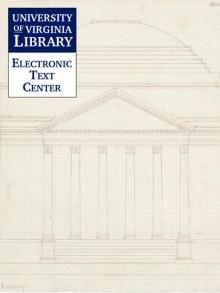 The Adventure of the Beryl Coronet
The Adventure of the Beryl Coronet The Refugees
The Refugees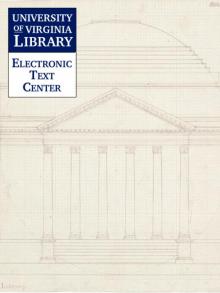 The Adventure of the Three Students.
The Adventure of the Three Students.